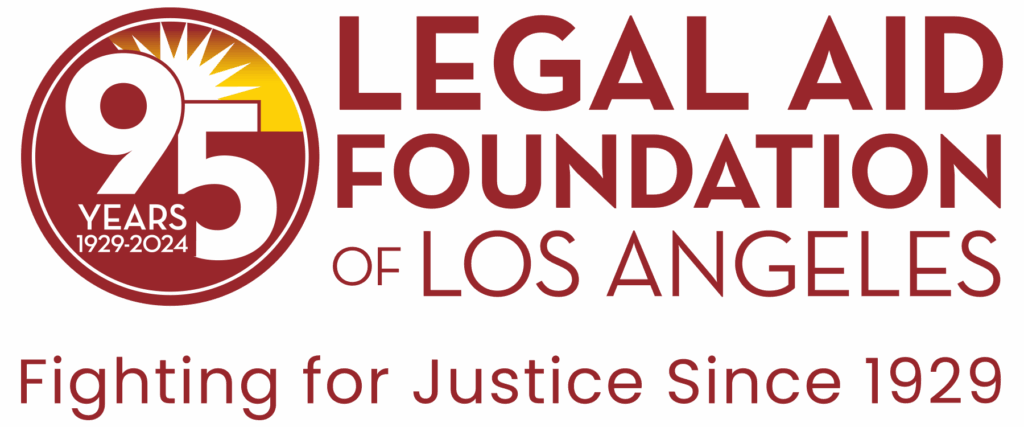
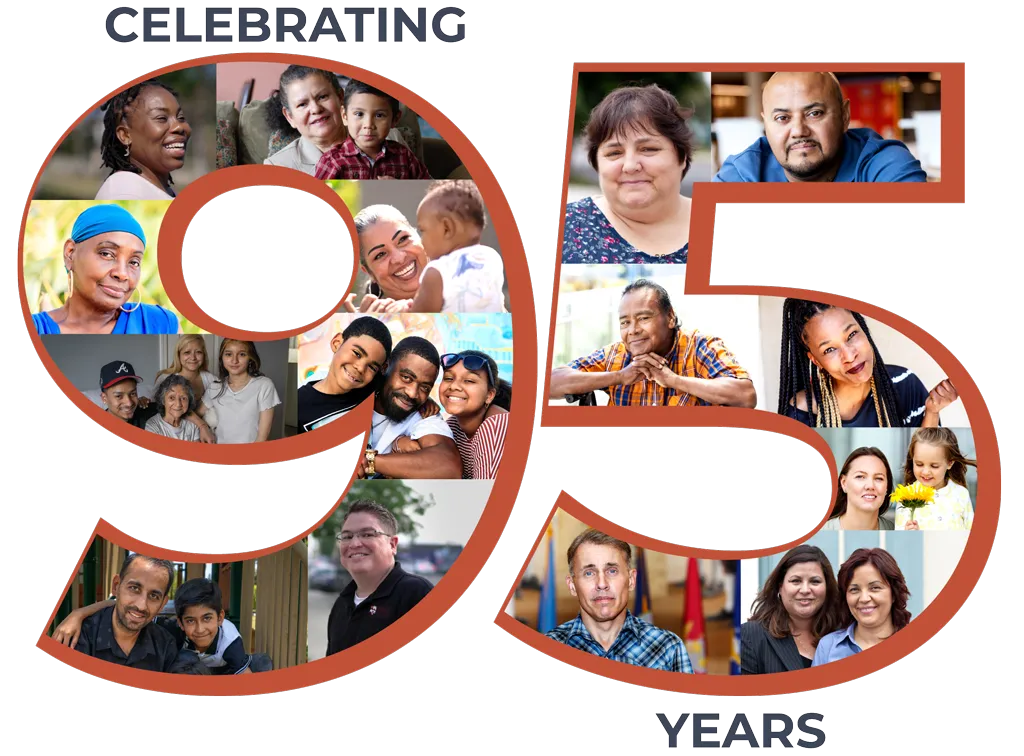
2024
Annual Report
Lessons in
Resilience:
95 Years Fighting
for Justice
Dear Friends and Supporters,
In 2024, the Legal Aid Foundation of Los Angeles (LAFLA) celebrated 95 years protecting the promise of equal access to justice.
In recent years, our world has changed quickly and radically. But LAFLA was created to see our communities through unprecedented times. Founded in 1929, we have remained a bedrock resource through nearly a century of change: from the Great Depression to World War II, the economic crises of the ‘80s and 2000s, the COVID-19 pandemic, and more. In every era, LAFLA has pioneered new ways to bring justice into reach for all—and we continue to build on those lessons today.
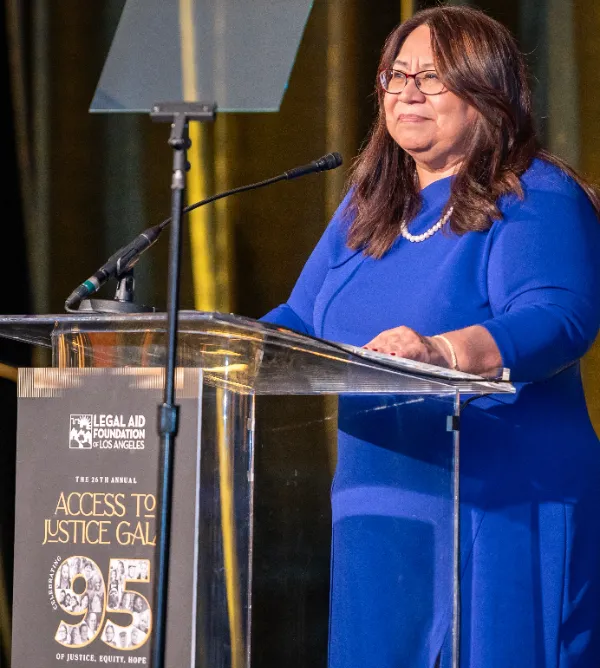
In 1983, LAFLA created LA’s first specialized homelessness prevention program—our Eviction Defense Center—which transformed access to justice in the region by enabling low-income tenants to have their day in court. When the COVID-19 pandemic struck, this deep expertise enabled us to rapidly convene Stay Housed LA, a strategic collaboration to empower tenants countywide. And in 2024, our movement won a truly unprecedented victory: the right to legal counsel for low-income tenants facing eviction in the County of Los Angeles.
Read More
Our commitment to equal access for all has led us to countless innovations designed to ensure no one is overlooked. In the ‘90s, we were among the first to make our comprehensive legal services available regardless of language through our Asian Pacific Islander Community Outreach Project. In 1999, we founded our Veterans Justice Center, LA’s first legal program for homeless Veterans. In 2011, we launched the first of our six Medical-Legal Partnerships, embedding our services in healthcare centers to help patients navigate the legal system.
These last 95 years have proved that, when we fulfill the fundamental right of every person to due process, fair treatment, and dignity before the law, we can achieve a world of safety, freedom, and justice for all. But with more than 2 million people eligible for LAFLA’s services in Los Angeles alone, we need your support to make this vision a reality.
We are immensely grateful for our community of donors, volunteers, and supporters who champion our mission and expand our reach. We’re humbled to have your support in the movement for equal justice, and we won’t give up the fight—for as long as it takes.
Adelante,

Silvia R. Argueta
Executive Director

Kahn A. Scolnick
Board President
Partner, Gibson Dunn & Crutcher LLP
ACCOMPLISHMENTS
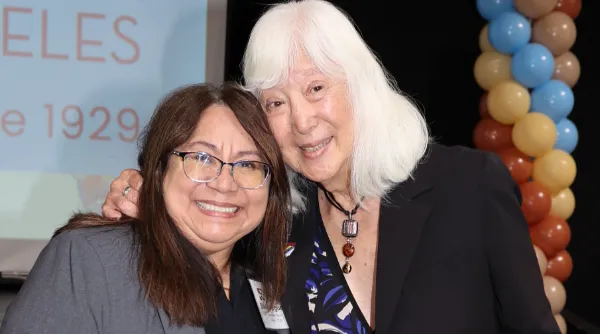
Rooted in Community, Guided by
Justice: 95 Years of LAFLA
To celebrate 95 years fighting for justice, LAFLA held a special event, “Rooted in Community, Guided by Justice.” We were honored to be joined by civil rights leaders Mia Yamamoto, a trailblazing activist for gender and racial equality, and Pete White, founder of Los Angeles Community Action Network, which champions the human right to housing, health, and security in Los Angeles. Our communities are the heart and soul of the movement for equal justice!
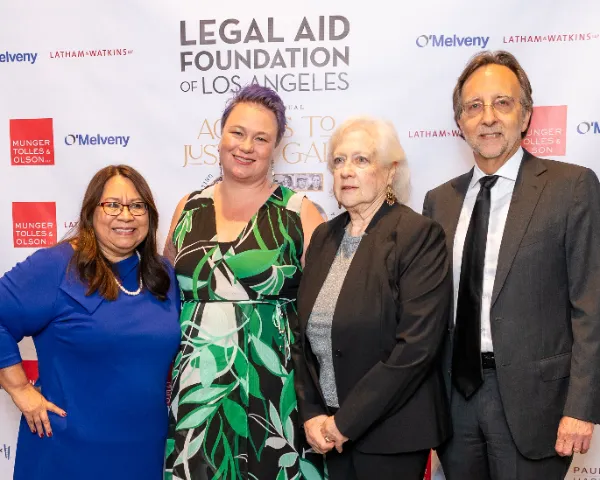
ACCESS TO JUSTICE GALA: CELEBRATING
THE MOVEMENT TO END HOMELESSNESS
This year’s incredibly special Access to Justice Gala shone a light on the growing movement to end homelessness in Los Angeles. Our celebration uplifted the work of Maynard Toll honoree Carol Sobel, for her fierce advocacy for the human and civil rights of unhoused people; Pro Bono Service honorees David Lash and O’Melveny & Myers for mobilizing the legal community to join the movement; and Access to Justice honoree Shane Murphy Goldsmith for her leadership fighting unjust evictions with Stay Housed LA—preventing homelessness before it begins.

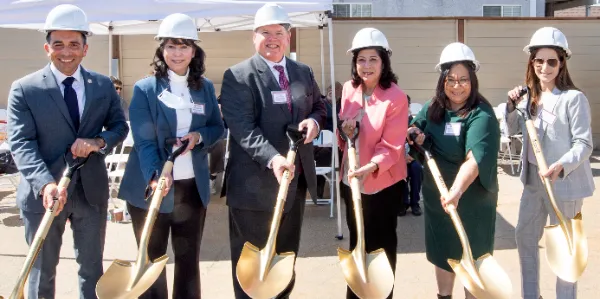
CREATING A TRANSFORMATIVE HUB
FOR JUSTICE IN EAST LOS ANGELES
For over 50 years, LAFLA has been a cornerstone of equal justice in East LA, moving from Boyle Heights to Whittier Blvd. in 1972. This year, we began rebuilding our longtime home into a welcoming space that will offer our clients the dignity and respect they deserve as they seek justice. And the iconic mural of Joaquin Murieta by Chicano arts pioneer Willie Herrón III—a precious piece of cultural heritage that has made our office a local landmark—will be reinstalled when construction is complete.
Photo: Hon. E. Martin Estrada, LAFLA director Yolanda Arias, capital campaign chair Jim Burgess, Sup. Hilda Solis, Silvia Argueta, and board chair emerita Amy Lerner-Hill.
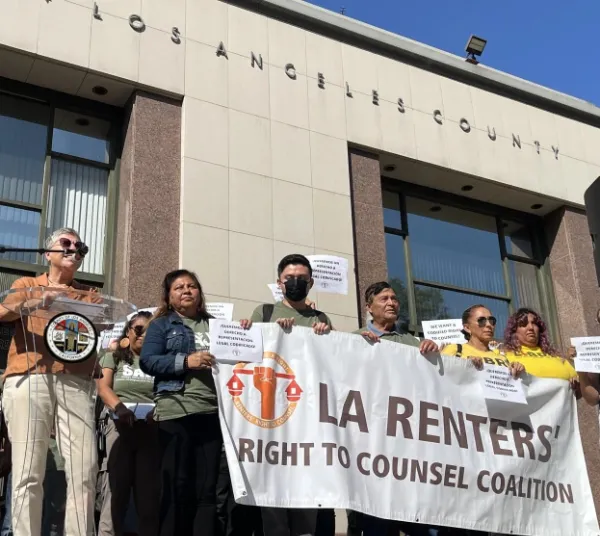
VICTORY: LA COUNTY ADOPTS RENTERS’ RIGHT TO COUNSEL
This year, Los Angeles County took a critical step toward equal access to justice for all Angelenos by guaranteeing free legal counsel for low-income tenants facing eviction. Historically, 95% of LA landlords have had an attorney by their side, while less than 10% of renters could afford a lawyer to protect their rights. Across the U.S., right-to- counsel laws have proven that when tenants have a fair shot at the justice system, more people stay housed, communities grow stronger, and public dollars are saved. As a founding member of the LA Renters’ Right to Counsel Coalition and Stay Housed LA, LAFLA is thrilled to see the fruits of our tireless advocacy to empower low-income households.
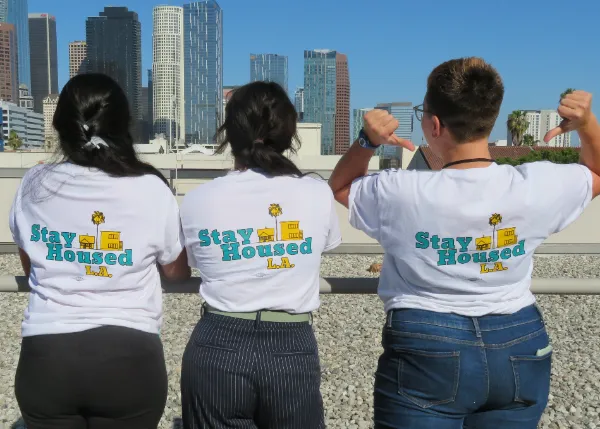
MAKING RIGHTS A REALITY WITH STAY HOUSED LA
It takes action to make rights on paper into reality. That’s why LAFLA proudly leads Stay Housed LA, a publicly funded initiative to prevent homelessness by providing legal help to low-income tenants facing eviction. Founded in 2020, Stay Housed LA is now a thriving coalition of 13 legal service providers and 16 community-based organizations. In 2024, we more than doubled our outreach, engaging with 879,600 tenants about their rights! Together, we also held 437 educational workshops and legal clinics, and provided 10,793 low-income households with free legal services—helping more Angelenos stay housed.
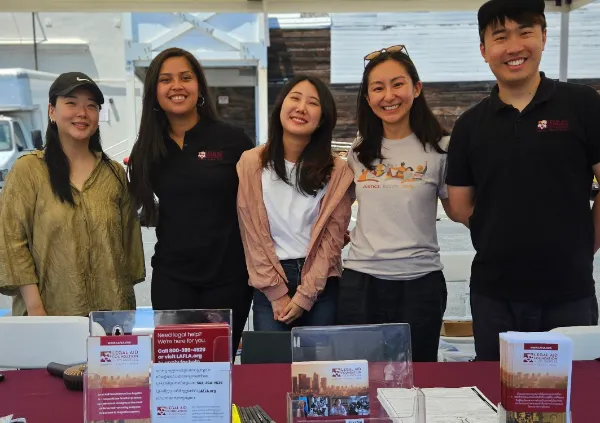
EXPANDING ACCESS TO CRITICAL PUBLIC RESOURCES
In a state where over 200 languages are spoken, multilingual services are critical to equal access to government. As part of a 2022 settlement won by LAFLA and partners, this year California launched online applications for unemployment insurance in Armenian, Korean, and Tagalog, in addition to English, Spanish, traditional and simplified Chinese, and Vietnamese. And that’s just the beginning: more languages are on the way to ensure that every individual, regardless of language, has the opportunity to get back on their feet.
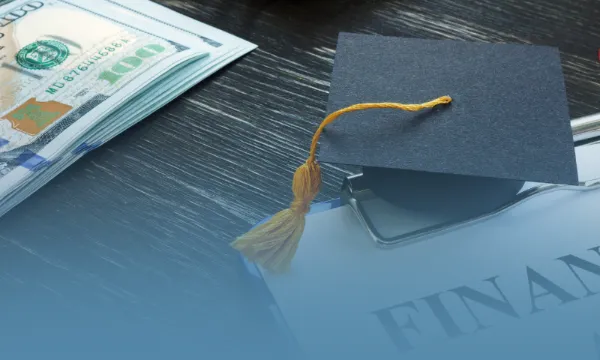
PROTECTING LOW-INCOME STUDENTS TARGETED BY LOAN FRAUD
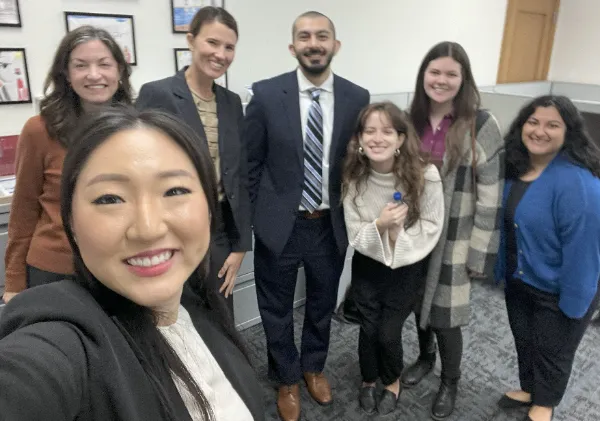
MENTORING THE ANTI-VIOLENCE ADVOCATES OF THE FUTURE
LAFLA is deeply invested in developing the next generation of public interest advocates. This year, we launched a Domestic Violence Practicum with UCLA Law School, engaging students in the important work of protecting survivors under the mentorship of our experienced attorneys. These promising young advocates already have an incredible track record—winning nearly every case they’ve had!
OUR IMPACT
Since 1929, the Legal Aid Foundation of Los Angeles (LAFLA) has transformed lives with our unique combination of legal services, community empowerment, and systemic advocacy.
IMPACT

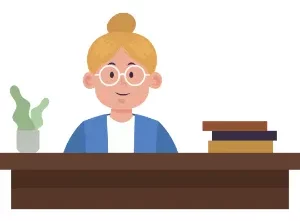
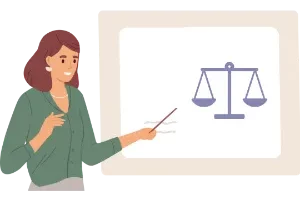

ISSUES
REACH
Client Demographics
donated
services
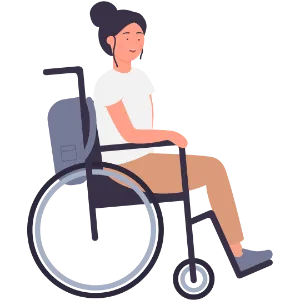
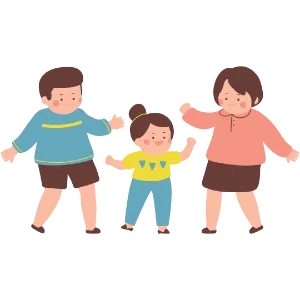
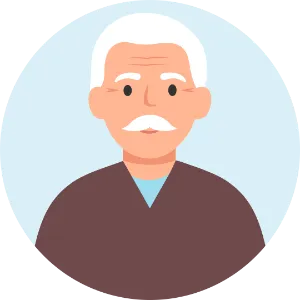

served
ACCESS

offices

centers

violence clinics


hotlines
TRANSFORMING LIVES
ARTIST’S 10-YEAR FIGHT FOR DISABILITY PAYS OFF
“I hate to say the system is broken, but it was impossible to navigate without help. LAFLA was a lifesaver.”
At 40, Burke was living his dream. A talented creative, he’d come to Los Angeles from Idaho and built a successful career as a makeup artist and hair stylist. But Burke’s life took a turn when a childhood injury started to catch up with him. As his chronic headaches, pains, and fatigue steadily worsened, he was forced to undergo spinal surgery. Unfortunately, it caused complications, and Burke was left with excruciating pain that wouldn’t go away—and was devastated to find he could no longer work. “I’d lose feeling in my fingers and start dropping everything. My hands and legs would swell up like footballs and I couldn’t move,” he said.
Burke stretched his savings while he applied for General Relief and Social Security benefits. But soon, he could no longer pay the rent, and he was evicted. With nowhere to go, he slept on friends’ couches, feeling he had lost everything: his health, his home, and his career.
Despite these hardships, Burke’s application for disability assistance was denied. “They wouldn’t believe me because they thought I was too young,” Burke said. He knew that wasn’t fair, so he filed an appeal and applied for legal help.
LAFLA attorney Tanya McGary represented Burke at his appeal hearing. But the judge denied the appeal, again implying that Burke was exaggerating his condition to avoid working. In fact, nothing could have been further from the truth: “I saw how hard it was for him just to move around, and how much it upset him to not do the profession he was so passionate about,” Tanya said. She challenged the decision, requesting a review before the Appeals Council. Her request was denied.
Years were going by while LAFLA fought for Burke, and there was no sign that Social Security would budge. But Tanya wasn’t going to give up. She took Burke’s complaint to a higher authority: federal court. There, she showed that the SSA had made harmful assumptions about Burke that contradicted his clear record of debilitating conditions. The judge agreed, and ordered the SSA to reconsider their decision.
Tanya represented Burke at his second administrative hearing. Finally, Burke’s application for disability benefits was approved, and he was awarded backpay for the 10 years he’d been wrongly denied! With support from his friends, Burke has found a new creative practice in home decor—”something I can do every day without too much pain”—and his apartment is filled with love and art.
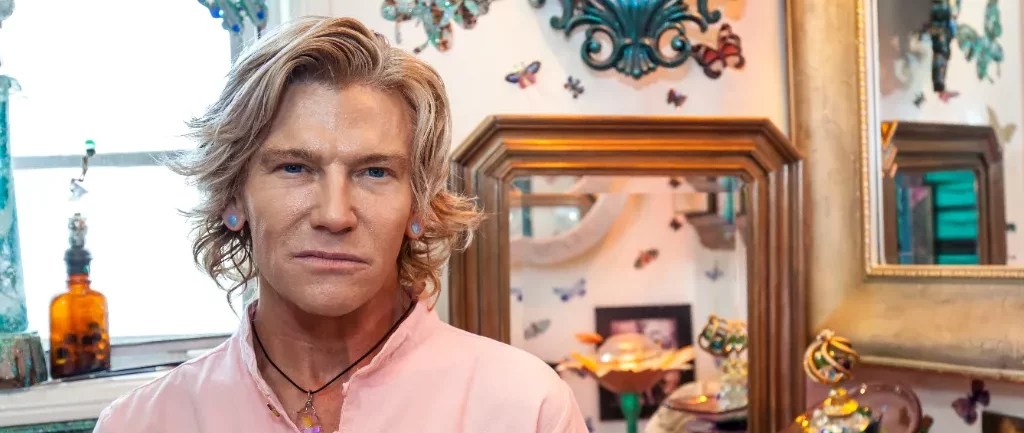
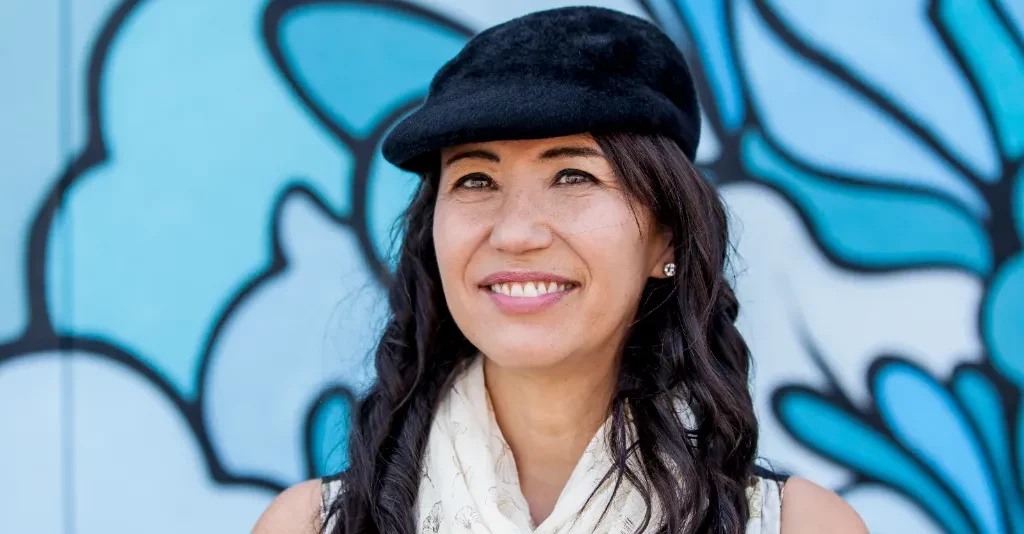
MOM STANDS UP FOR VICTIMS OF BENEFITS THEFT
“At first, I was scared—it wasn’t just me versus some other person, but me versus the County of Los Angeles. But LAFLA really helped me.”
After months of looking for work, Emi was relieved to find a part-time job. Since she received CalFresh and CalWORKS benefits, she diligently reported the small bump in her income to the L.A. County Department of Social Services (DPSS). Rather than adjusting her monthly payments, they suggested she save the money to build an emergency cushion in her benefits account.
But shortly afterward, Emi went to the grocery store—and her EBT card was declined. “At first, I thought I had the wrong PIN,” she said. “I went to my car and called [DPSS], and they said I didn’t have any funds.” They also informed her that her card had just been used in stores from Arkansas to Minnesota. That’s when Emi realized that thieves had drained all the money from her account.
Benefits “skimming” is an increasingly common crime that exploits the poor security on government- issued cards to cruelly target low-income families. Though the issue is widely reported, DPSS told Emi there was nothing they could do: The money was gone.
Emi started visiting food pantries and asking family for help. She was scared, but she tried to shield her four-year-old son from their struggles. “On his birthday, I was able to get him a free pancake meal at Denny’s,” she remembered.
Then, adding insult to injury, DPSS sent Emi a letter demanding that she pay them back for the theft. They’d made a mistake by giving her the money in the first place, they claimed—and since they couldn’t recover the stolen funds, they expected Emi to pay it out of her pocket. “I was like, why am I responsible for paying this money back? I was in a dire situation,” Emi said. She had no way of coming up with that kind of money, but she had read about LAFLA’s free services, so she called and was connected with attorney Matt Clark.
Matt filed a complaint, pointing out that Emi shouldn’t be penalized because of the County’s mistake. When DPSS refused to reconsider, Matt filed an appeal with the State of California. He represented Emi before the administrative law judge, showing that she had done nothing wrong. The judge agreed, ruling that Emi didn’t have to pay back the funds the County had mistakenly paid her—enough to compensate her for the theft.
Emi was ecstatic that she had won her case. Today, she uses her experience to support others. Once, in a moms’ group, she saw a woman being shamed for losing her food stamps to skimmers: “Because of the way LAFLA stood up for me, I stood up for her,” she said. “I told her that this is a very common problem, and to contact LAFLA for help. Because it’s not your fault.”
Programs & Teams
ECONOMIC STABILITY WORKGROUP
We ensure that L.A.’s diverse API communities have full access to LAFLA’s services by implementing a linguistically accessible, culturally intelligent, and trauma-informed approach across the organization.
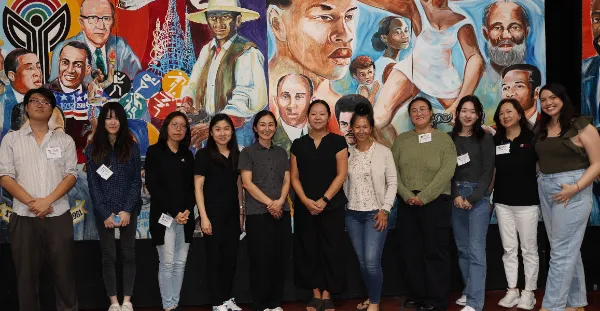
EVICTION DEFENSE CENTER
Founded in 1983, we continue to lead the way on homelessness prevention with Stay Housed LA, a regional collaboration to keep tenants housed through legal representation, know-your-rights education, and case management. We fight violations of tenants’ rights, preserve Section 8 vouchers and other housing resources, and advocate strong protections for L.A.’s majority renter community.
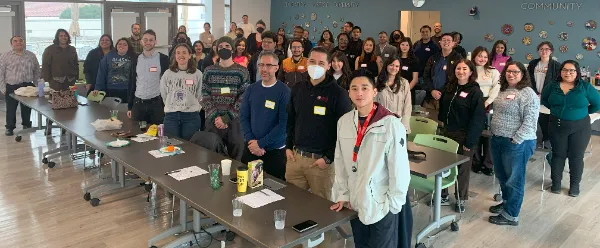
ECONOMIC STABILITY WORKGROUP
We empower people to sustain their households with the resources they need to thrive. Our Government Benefits team helps people get, keep, and use public benefits for food, medical care, and more. Our Employment team protects workers by fighting wage theft, denial of unemployment benefits, wrongful terminations and discrimination. Our Student Debt team secures life- changing relief for people who studied at predatory for- profit colleges.
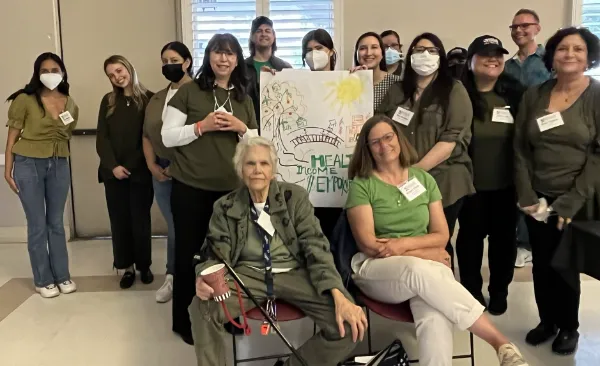
HOUSING AND COMMUNITIES WORKGROUP
We build strong, vibrant communities by preventing displacement, preserving generational wealth, and supporting self-determination. Through our movement-lawyering approach, we protect and expand affordable housing, build capacity in community-based organizations, and pioneer new economic models for a just distribution of resources.
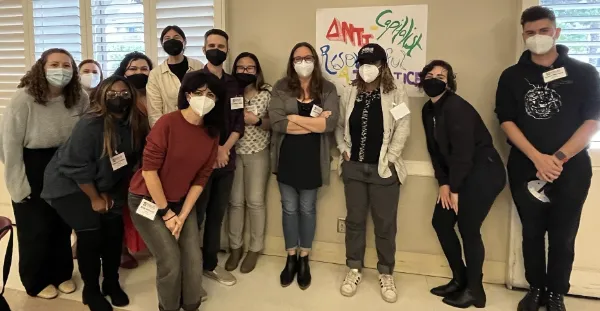
IMMIGRATION ACCESS WORKGROUP
We specialize in assisting survivors of domestic violence, human trafficking, political persecution, and other serious harm to gain protected status in the U.S., including visas, asylum, and citizenship. Our Torture Survivors Project is nationally recognized for advancing a trauma-informed, culturally intelligent service model for refugees and other survivors.
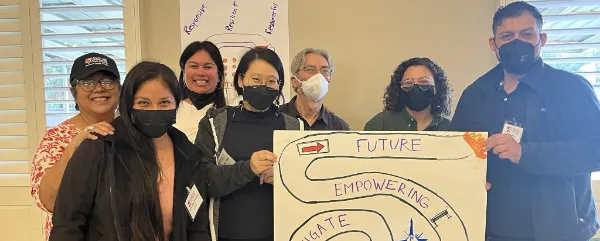
MEDICAL-LEGAL PARTNERSHIPS
We cultivate healthy communities by addressing basic needs like stable housing, access to food, and safe families. Through partnerships at six major healthcare providers across L.A. County, our nationally recognized model helps patients and their families overcome the social, legal, and economic problems that can play a major role in health and wellbeing.
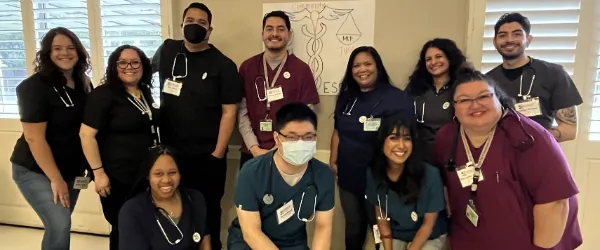
RESTORING COMMUNITIES WORKGROUP
We work to repair the harms of mass incarceration, homelessness, and other systemic causes of displacement and destabilization. We support formerly incarcerated individuals seeking a fresh start by increasing access to good jobs, stable housing, and other life-changing opportunities. Our Preventing and Ending Homelessness Program keeps at-risk tenants in their homes and removes barriers to re-housing for unhoused individuals and families.
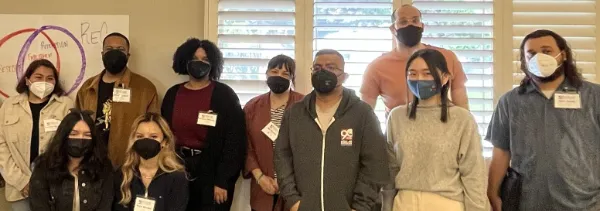
SANTA MONICA COMMUNITY OFFICE
Our Santa Monica office offers the full range of LAFLA’s services to the unique Santa Monica community, including housing rights, family law, and public benefits.
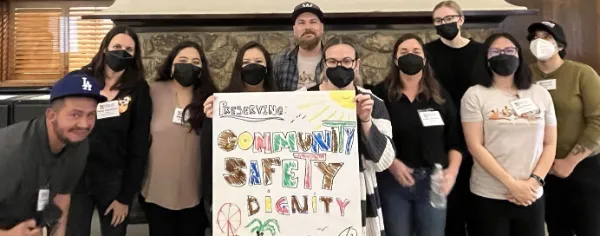
SELF-HELP LEGAL ACCESS CENTERS
With locations inside four L.A.-area courthouses, we support individuals representing themselves in legal matters—regardless of income or immigration status. We provide legal information, assistance preparing court forms, and guidance on navigating the complex legal system. We also offer referrals to private attorneys and legal services.
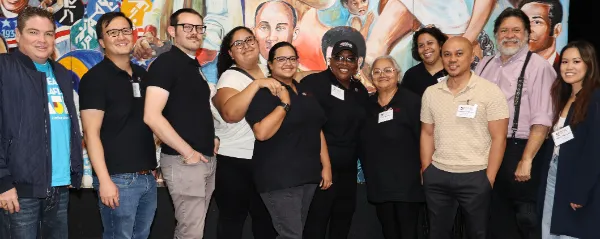
SURVIVOR AND FAMILY JUSTICE WORKGROUP
We empower survivors of domestic violence and sexual assault to leave abusive relationships and rebuild their lives. Our assistance with emergency restraining orders, custody and visitation orders, child support, and more helps survivors overcome core obstacles on the journey to safety, such as protection for children and financial f reedom.
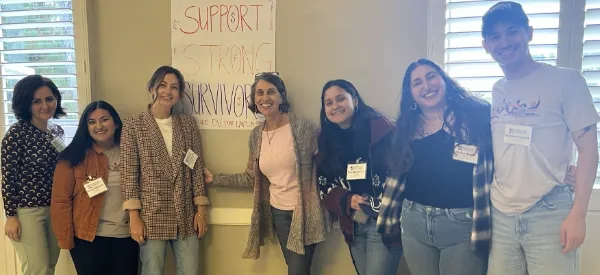
UNHOUSED PEOPLE’S JUSTICE PROJECT
Guided by deep partnerships with impacted communities, we defend civil and human rights, support individuals and families on the path to rehousing, and challenge unjust government practices through groundbreaking impact litigation.
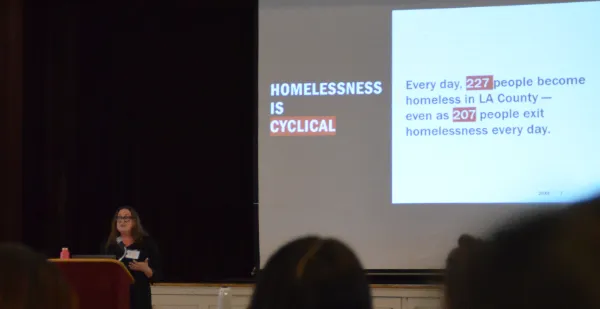
VETERANS JUSTICE CENTER
We help Veterans rebuild their lives with access to a steady income, a stable home, and the healthcare they need to thrive. For Veterans who have tickets, criminal convictions, or less-than-honorable discharges, we advocate for a fresh start.
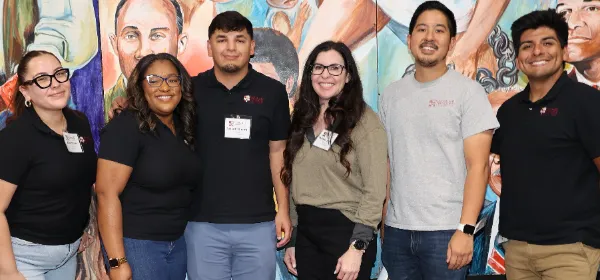
ECONOMIC STABILITY WORKGROUP
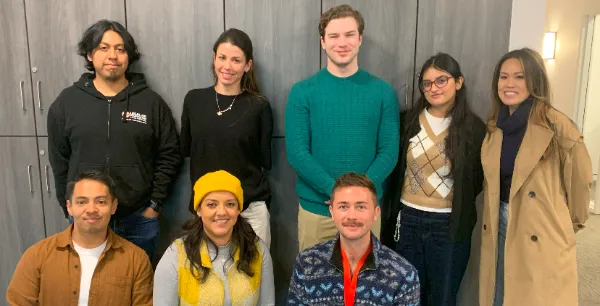
ECONOMIC STABILITY WORKGROUP
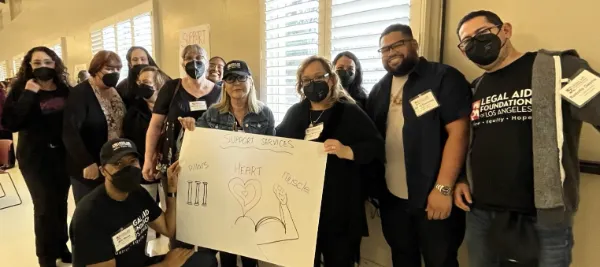
FINANCIALS
Revenue & Support
Expenses
DONATED SERVICES
THANK YOU
PRESIDENT
Kahn A. Scolnick
VICE PRESIDENT
Lynette Jones
SECRETARY
Joseph Farrell
TREASURER
Brianne Weiss
COMMUNITY COMMITTEE CHAIR
C. Cleo Ray
BOARD OF DIRECTORS
Eric J. Bakewell
Wendy R. Cabil
Kyle Casazza
Sean A. Commons
Carissa Coze
Marc Feinstein
Debra L. Fischer
Gary E. Gans
Felix Garcia
Fanny Gomez
Naomi Haywood
Amy Lerner-Hill
James E. Hornstein
Kimberly Klinsport
Bethany Kristovich
Michael Maddigan
Clementina Lopez
John Maldonado
Matthew Marmolejo
Virginia F. Milstead
Kevin J. Minnick
Christopher Rivas
David Lewis Sagal
Kareen Sandoval
Marc M. Seltzer
Douglas A. Thompson
Nicholas A. Trutanich
Ronald B. Turovsky
Jaqueline Vazquez
Pamela L. Westhoff
Achieving America Family Foundation
Ahmanson Foundation Anthony & Jeanne Pritzker
Family Foundation Knock Out Productions Ontra
Paul Hastings
S. Mark Taper Foundation
CHAMPION
Munger, Tolles & Olson
GUARDIAN CHAMPION
Latham & Watkins
O’Melveny & Myers
GUARDIAN
City National Bank
Gibson Dunn
Kirkland & Ellis
Morgan Lewis
Orrick
Paul Hastings
Skadden
ADVOCATE
Fox
Jenner & Block
Manatt
Quinn Emanuel Urquhart & Sullivan
Sheppard Mullin
PATRON
AT&T
Bet Tzedek Legal Services Covington
Debra Fischer & Sherwin Frey
Foley & Lardner
HKA
Hogan Lovells
Loeb & Loeb
Mayer Brown
McGuire Woods
Proskauer
The Sidley Austin Foundation
Sony Pictures
Southern California Edison
PARTNER
Amazon
Dahlia & Art Bilger
Glaser Weil
Greenberg Glusker Insurance Office of America
Jim Hornstein & Victoria Diamantidis
Karsh Family Foundation
Liberty Hill Foundation
Marc M. Seltzer
Martin & Karen Tachiki
The Morrison Foerster Foundation
Planned Parenthood
Advocacy Project of Los Angeles County
Reed Smith
Schonbrun Sepolw Harris Hoffman & Zeldes
Seyfarth
Spertus Landes & Josephs
Telacu
Wilmer Hale
Wolfen Family Foundation
Xerox
